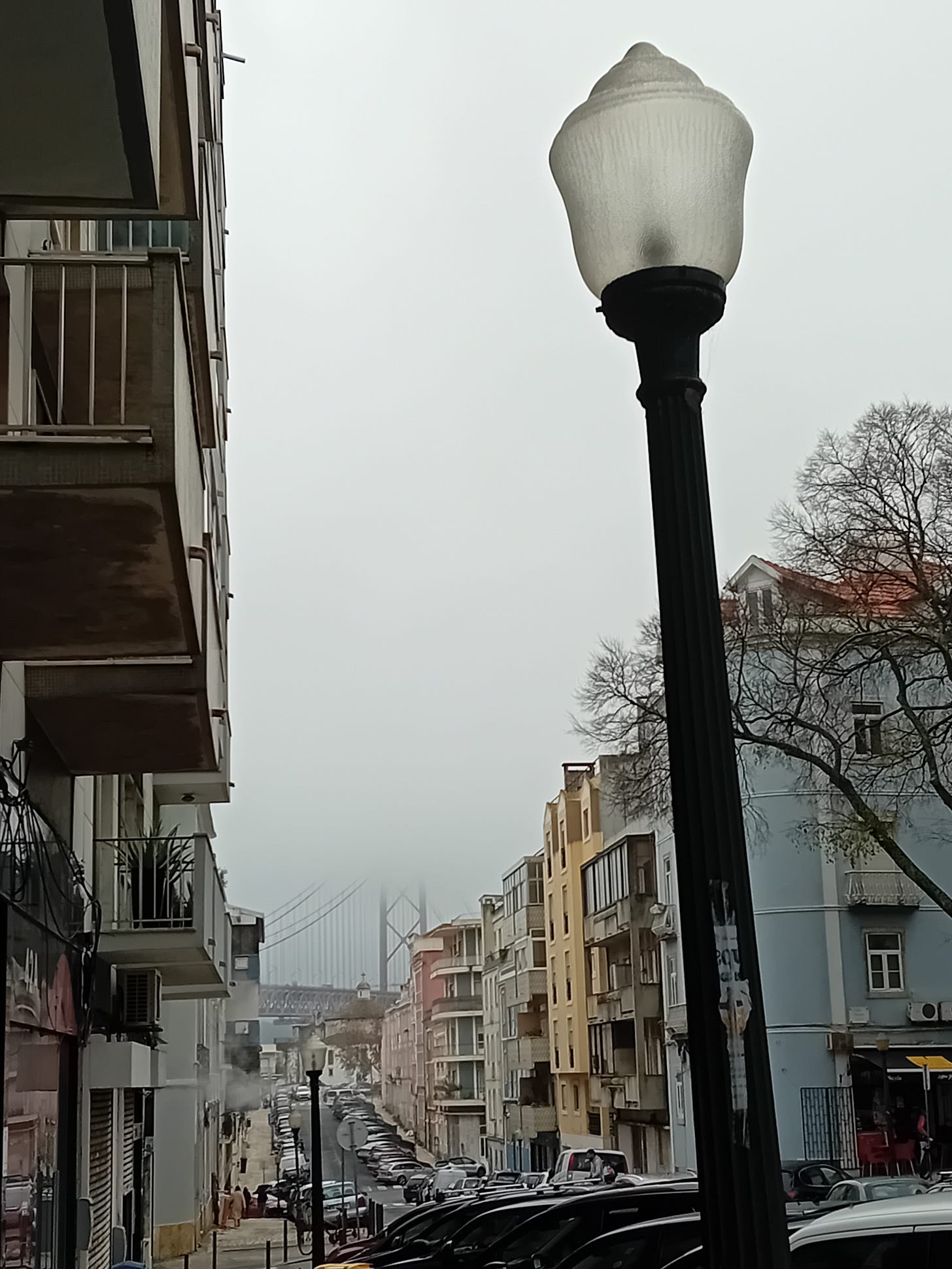It never happens all at once, understanding. It is a slow process, many slow steps—gathering information, gathering insights and experiences, all slowly arranging itself in your mind where it becomes something closer to the narrative with which we so occupy ourselves these days. Here is a narrative: my husband and our dog arrived here, at Humberto Delgado International Airport three years ago tomorrow, 31 January; we started our lives over; we bought a house, which we spent several months fixing up prior to installing ourselves there at the end of May—it was to be our forever home. As it turned out, I would only live there for two months; nearly six months to the day after arriving to start our lives over in central Portugal, my marriage was over, and there was now no home, no dog and no husband.
Another narrative: the first few years of life abroad were, due to circumstance, a bit strained—the emotional toll taken by a marriage come apart is only compounded when it does so on the other side of the world, where everything is new, everything has to be relearned—or, it feels the same as back home but seen from different angle. I see these last three years now, recent as they are, as if I had been living in a liminal state—everything I could see or feel immaterial, made of light or ether or, in any case, lacking solidity.
As I was in the taxi on my way home from the airport after my first visit back to the US since arriving here, I began to see, finally, what this experience—moving abroad—really comes down to: it is not the physical place, its climate or habits or customs that animate this experience, it is the way the place, its customs and habits come to inhabit oneself. The six days I spent with my family were fascinating because for six days my mind and mouth were reaching out and doing their habitual work in Portuguese, but there was no one there to ground that connection, that linguistic wire; as I glided in the cab through the morning fog and radio chatter, giving directions to the driver (there are three streets in the district with the same name as the street in which I live, cab rides require a certain vigilance), aqui à esquerda…lá pra frente…estacionamos naquela paragem…’brigadíssimo—that, despite the intense travel and near delirious state in which I found myself, my jetlagged mind relaxed naturally and quite gratefully into the river of Portuguese, relaxed into a part of life that is just as much the experience of being here as the bacalhau or the tiles or the festivals across the country in June. The language has taken up residence within, and announces itself every day the most necessary and difficult and fascinating and rewarding part of this adventure—the rewiring of my own synapses, the necessity of flexibility. The language, I see now, means as much to me as the sunsets or the olive groves or the polished sidewalks—the physical manifestations and cues that tell us where we are—the language is as solid to me as the mountains, as the Palácio de Necessidades and perhaps it is from this solidity, the firmness of words on which I will build, eventually, my forever home.





Stirring and moving. Thank you for sharing this journey in all of its incarnations to its present state of seemingly more comfort and ease. As I read it, I hope that one day the language will flow as easily as it does now for you. I remain hopeful after reading this. Portugal inhabits a soul space for me that I know will only grow with time.